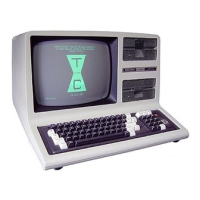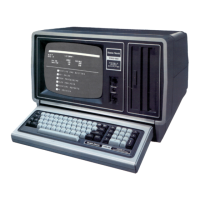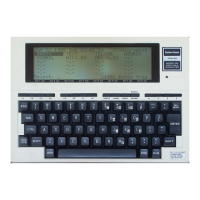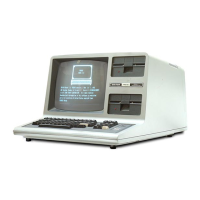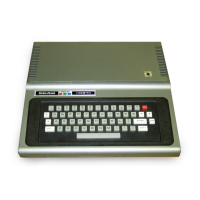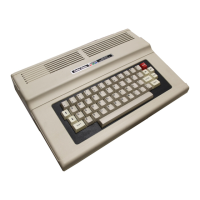Model
II
TRSDOS
Although
name-extensions
are
optional,
they
are
useful for identifying
what
type
of
data
is
in
the
file.
For
example,
you
might
want
to
use
the
following
set
of
extensions:
IBAS
ITXT
IOBJ
IF<EL
IDVR
WildCard
BASIC
program
ASCII
text
Object
code
Relocatable
machine-language
program
Input/output
driver
Source
code
Certain library commands allow you to specify a collection offiles by using a
"wild-card"
field in place
of
the file name and/or extension. An asterisk
"*,,
in a
file specification represents a wild-card field, and means,
"any
sequence
of
one or
more characters here',.
Unless restrictions are statedfor a command, wild-card fields may take any
of
the
following forms:
Wild-Card Fields
*
*string
string*
*string*
string
*string
Where string is a sequence
of
characters. The overall length ofthe wild-card field
depends on whetherit appears
in
the file name orfile extension.
Forexample:
MOVE
*
/BAS:O
TO
:1
copies all files with the extension" /BAS" from drive 0 to drive
1.
DIR
*/COM:O
gives the drive zero directory, listing all user files with the extension'
'/COM".
(DIR
allows a wild-card field only in place
of
the entire file name, and not
in
place
of
the
file extension.)
KILL
*LST/*:O
kills all files with
"LST"
at the end
ofthe
file name, regardless
of
the other
characters in the name and extension.
TRSDOS prompts you before deleting any file.
The wild-card option is available on the following commands:
KILL
MOVE
DIR
(wild-card field for entire file name only)
60

